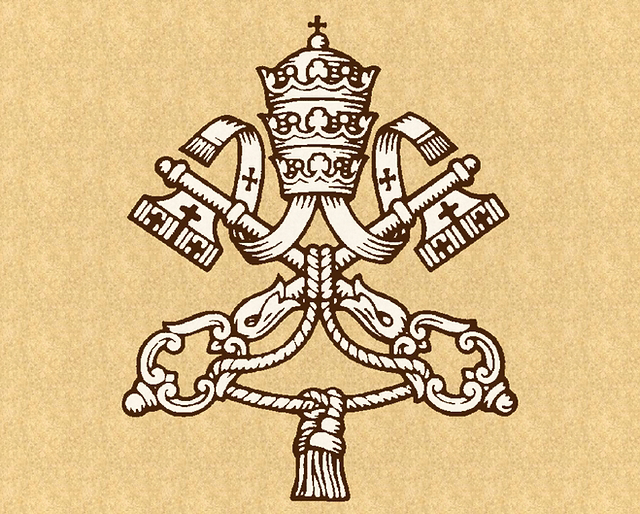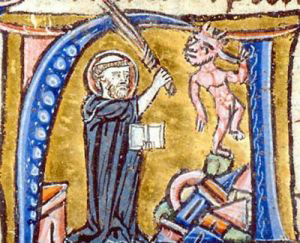The Sexual Abuse Scandals in the Catholic Church
The below post is an answer I gave to a question asked of me on the site "Quora." I have republished it here. You can find the original answer at: https://www.quora.com/profile/Parker-Zurbuch/answers
Original Question: Are you ashamed to admit that you are Catholic over the scandals of covering up cases of pedophilia by the hierarchy of the Catholic Church? Especially homosexual pedophilia when, on the one hand, they condemn normal gays, but tolerate molesters?
This is a great question! On the one hand, yes, I am extremely ashamed that those in my Church (The Catholic Church) have made such despicable choices that have caused so much scandal to the world. I wish it would have never happened, especially for the sake of the victims of these perpetrators. There is no defending these horrific crimes and sins, so often caused by leaders in the Church.
But, notice that I described my shame as being towards those in my Church. I did not describe my shame as being in the Catholic Church itself — and therefore, I am not ashamed in my identifying as a Catholic despite the Church’s scandalous members.
See, the thing about being Catholic, is that we believe that the Church is an entity larger than the members that make it up. The Catholic Church is, as Saint Paul says (in Romans 12:5,1; Corinthians 12:12–27; Ephesians 3:6, 4:15–16 and 5:23; Colossians 1:18 and 1:24; etc.), “The Body of Christ.” The Body is made of many members, but no individual member makes up the whole body.
We are also told by Jesus, in Scripture, that the Church (Christ’s Body) is like a vine:
“I am the true vine, and my Father is the vinedresser. Every branch of mine that bears no fruit, he takes away, and every branch that does bear fruit he prunes, that it may bear more fruit.” (John 15:1–2, RSV).
This means that those members of the Catholic Church, who are desperately trying to follow the teachings of Jesus Christ, must allow (and even encourage) this “pruning” of the fruitless branches (members). The fruitless branches include those individuals referenced in the original question above, as well as many others. The pruning itself is done in many fashions, but the bad branches — also identified in scripture as chaff — are doomed for eternal punishment, if they do not repent:
“His winnowing fork is in his hand, and he will clear his threshing floor and gather his wheat into the granary, but the chaff he will burn with unquenchable fire.” (Matthew 3:12, RSV).
This brings up another, very important point: I should not be ashamed of being Catholic, but I certainly should feel shame about those within my Church who do shameful and despicable things. HOWEVER, I will always hope and pray for these shameful members of the Church to convert, ask for forgiveness, and repent. This hope, though, does not expect the sinner to get off without reparation to be completed.
If I break my neighbor’s window, he can forgive me if I ask his forgiveness, but I must still repay my neighbor for the damages and/or fix the window myself. This is what we call “Penance.”
So, even if Cardinal McCarrick publicly asked forgiveness for his crimes, and even went to each victim (where possible) and asked their personal forgiveness, he would still need to give reparation to those he directly harmed and scandalized through his actions. This might involve financial compensation to victims (out of his own pocket), or even other forms of reparation. It would also involve some sort of reparation to the greater society, and the Church herself, for his scandalous actions.
One of the main beauties of the Christian message is that, “God always forgives. His mercy is endless.” But, we must not assume that, because of His mercy, that God is not also just. He forgives the sinner, but also requires repayment (reparation) for the sin committed. This is the basis for the Catholic idea of Purgatory. Purgatory is a state, after death, for those who have sought genuine forgiveness of their sins, and have thus been forgiven (and are therefore guaranteed Heaven). But these persons lack sufficient reparation for said sins. This lack of reparation is an imperfection within the person. They have not totally “fixed the broken window” caused by their wrongdoing. As the book of Revelation says, “…nothing unclean shall enter [Heaven], nor any one who practices abomination or falsehood…” (Revelation 21:27, RSV), one cannot enter Heaven (even though one has been fully forgiven, and has repented) until these reparations have been completed.
This does not mean that Jesus’ sacrifice has been for nothing, or that we (in any way) are “meriting” salvation. Jesus died that we might be forgiven of our sins. He died to take away our punishment (Hell), and give us the opportunity for eternal life (Heaven). Jesus’ sacrifice has healed (and will heal) those that accept him through baptism, and who persevere to eternal life. However, Jesus’ sacrifice does not enable us to presumption of His forgiveness, and the reward of Heaven. It does not give us license to sin, and then simply ask forgiveness from God, without there being any need for us to fix the wrong we have caused by said sin.
This issue matters so much to the aforesaid question. We all know that the perpetrators of sexual abuse (especially those within the Catholic Church) may end up repenting of their grievous sins. Without this view of the necessity of reparation, it seems unjust to us that the persons who have caused such suffering could get off so easily (just by saying “I’m sorry” to God alone, before their deaths). The necessity of reparation is one salve that can heal our wounds in this crisis. Knowing that these men, who have committed such atrocities, cannot get off so easily. Sure, they can repent, ask forgiveness, be forgiven, and thus eventually end up in Heaven—BUT, they will need to go through much purgation before being allowed to enter the Heavenly bliss. They will need to make reparations to all those they have hurt, either in this life, or on the other side of the veil in Purgatory. They will not be able to enter Heaven if they do not repent, do not ask forgiveness, are not thus forgiven, and do not repair the damage that their sins have caused.
This is the beauty and majesty of the Catholic understanding of sin. In an odd way, I think that God will use these horrible crimes done by these horrible men to strengthen the Church for the future. In a paradoxical way, I think that these men will show both the judgment and (if they repent) the mercy of God. I do hope that all of those who have committed these crimes will eventually repent, ask forgiveness, be forgiven, and make full reparations to those they have wronged. I do not, and cannot, wish Hell on anyone. They can choose Hell by their actions, but I will not wish it on them.
This was a long answer to a short question, but I think that people deserve a thorough explanation of why I am not ashamed to be a Catholic, despite the actions of these terrible men. I do not claim that this answer has been written perfectly, or that it will be satisfactory to anyone. I will never defend what those men did, but I do hope that I will see them in Heaven. We must always keep in mind that each of us is one choice away from being as horrible as sexual abusers. We can judge actions as right or wrong, but we can never judge the state of a person’s soul.
Please ask questions for clarity. I am trying my best here.


Comments
Post a Comment